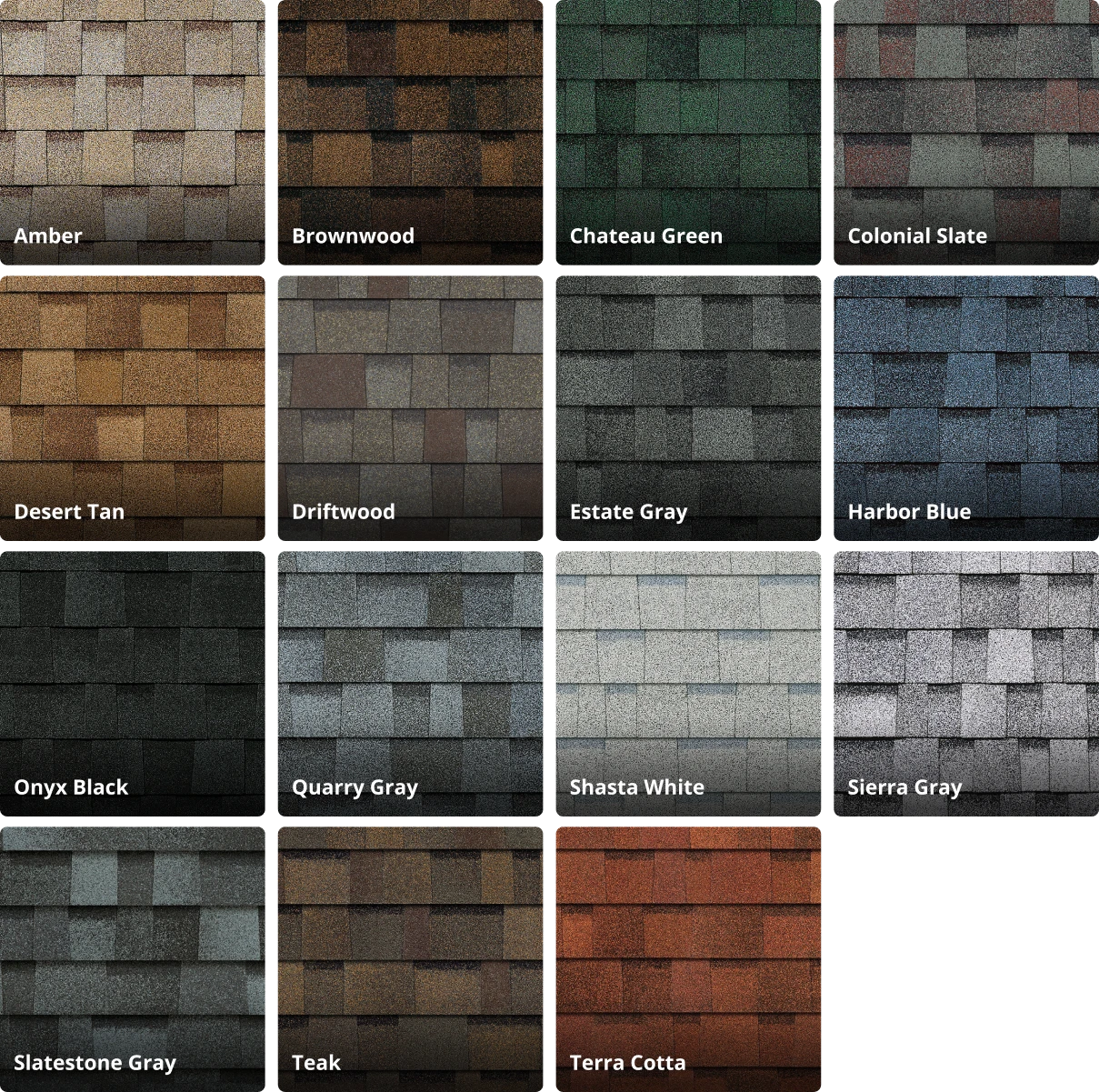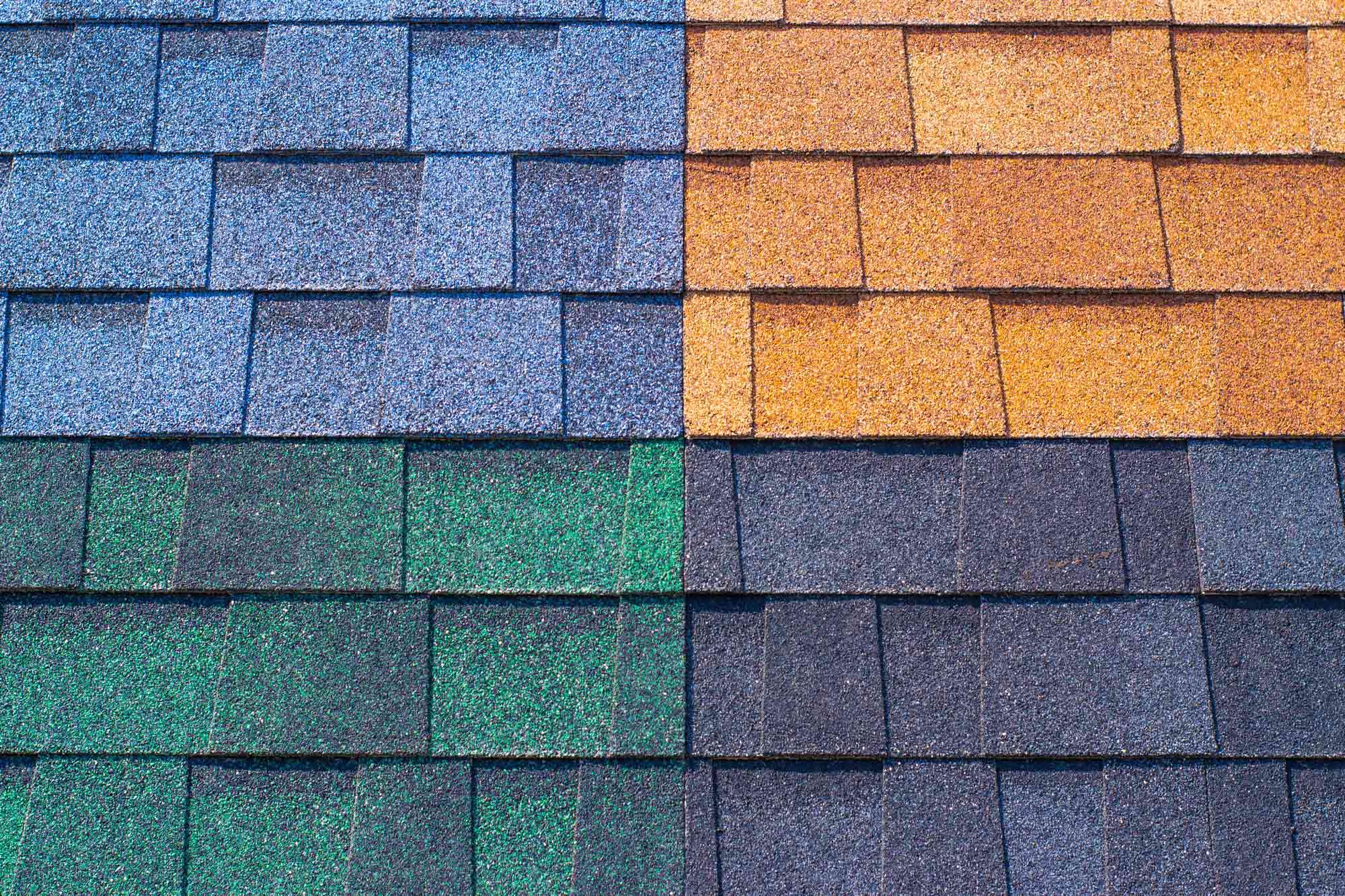Architectural Shingles Buying Guide for Inexperienced Homeowners
Wiki Article
The Ultimate Guide to Understanding Building Tiles for House Owners
When it comes to choosing the best roofing for your home, architectural roof shingles stand out as a prominent choice. If you're considering a long-lasting investment that boosts both worth and curb allure, you may want to discover what building roof shingles can use.What Are Architectural Tiles?
Architectural shingles, typically called dimensional tiles, are a popular roofing selection for property owners looking for both style and durability. Unlike conventional 3-tab shingles, architectural tiles feature a split layout that creates a distinctive appearance. This included dimension not just enhances your home's visual allure yet likewise simulates the look of more pricey materials, such as timber or slate.
In addition, building roof shingles boast a longer lifespan compared to conventional options, making them a wise financial investment. Their weight and density provide extra security versus wind and rain, providing you comfort. When you pick building shingles, you're integrating aesthetic appeals with useful benefits for your home.
Advantages of Finding Architectural Roofing Shingles
Selecting architectural tiles provides numerous benefits that can improve your home's total value and aesthetic appeal. Initially, their one-of-a-kind design resembles the look of a lot more expensive products like timber or slate, giving your home an elegant appearance without the large cost. You'll likewise appreciate their resilience; these shingles are engineered to stand up to harsh climate condition, lowering the chance of damages and the requirement for constant repair services.With respect to energy performance, several architectural shingles are designed to reflect sunshine, assisting to keep your home cooler and potentially decreasing energy prices. Generally, picking building shingles not just increases your home's aesthetic charm however additionally supplies long-lasting cost savings and defense, making them a wise financial investment for any type of property owner.
Secret Features of Architectural Roofing Shingles
When it comes to roof choices, building tiles stick out as a result of their unique layered layout and robust construction. These shingles supply a three-dimensional look that boosts your home's aesthetic allure, making it look a lot more elegant and advanced. One essential function is their resilience; they're made to endure extreme weather condition conditions, consisting of high winds and hefty rainfall.You'll also value their longevity, as lots of building shingles included guarantees varying from 30 to half a century, giving peace of mind. An additional advantage is their weight; they're heavier than typical three-tab shingles, which includes stability to your roofing system.
Furthermore, architectural roof shingles are often made from high-grade asphalt, ensuring much better resistance to fading and algae growth. With different colors and designs readily available, you can quickly locate a layout that matches your home's aesthetic. architectural shingles. These functions make architectural tiles a trendy and wise option for homeowners
Setup Process for Architectural Shingles
Before you start installing architectural roof shingles, you'll need to prepare and prepare very carefully. Comprehending the correct installation strategies will certainly ensure your roofing is resilient and durable. Allow's explore the important steps to obtain your job off on the best foot.Preparation and Planning Actions
Although setting up architectural tiles can appear challenging, proper prep work and preparation can make the process smoother and more reliable. Beginning by reviewing your roof covering's present condition, looking for damages or weak points. Collect all required devices and materials, consisting of roof shingles, underlayment, and flashing. Examine the weather report to pick a dry, mild day for installment, as extreme temperature levels can impact adhesion. Action your roofing accurately to establish the number of roof shingles you'll need, guaranteeing you account for waste. Ultimately, produce a thorough timeline for your task, enabling breaks and unanticipated hold-ups. By taking these actions, you'll set on your own up for an effective setup and boost your home's visual appeal with gorgeous building tiles.Setup Methods Introduction
With your prep work and planning full, it's time to concentrate on the installment methods for building shingles. Beginning at the eaves, putting tiles in overlapping rows, ensuring they're aligned correctly. Fasten each tile with 4 nails, locating them listed below the adhesive strip to protect against water infiltration.Maintenance Tips for Architectural Tiles
To keep your building shingles in leading form, regular upkeep is vital. Begin by inspecting your roof at the very least twice a year, particularly after extreme climate. Search for damaged or loose roof shingles, along with any indications of algae or moss development. Address them quickly to protect against further damage. if you find any problems.
Following, tidy your seamless gutters consistently to assure proper water drainage. Clogged gutters can result in water merging on your roof covering, which can damage your tiles over time. You can also delicately clean your roof shingles with a mix of water and mild cleaning agent to get rid of dirt and algae, yet stay clear of high-pressure washing, as it can displace tiles.
Ultimately, consider cutting looming branches to stop particles buildup and enable sunlight to dry your roof. By following these simple actions, you'll aid prolong the life of your building roof shingles and maintain your home's aesthetic allure.
Contrasting Architectural Shingles to Various Other Roof Covering Options
When you're selecting roofing materials, it's essential to evaluate the advantages and disadvantages of building tiles against other alternatives. Take into consideration elements like expense, longevity, and visual charm to find the very best suitable for your home. Allow's break down just how building shingles compare to standard asphalt and other roof covering types.Price Comparison Analysis
While you might be attracted to the aesthetic allure of architectural tiles, it's vital to examine how their prices stack up versus other roofing products. Normally, architectural roof shingles fall in the mid-range cost classification, costing between $90 and $100 per square. On the other hand, standard 3-tab shingles are a lot more economical, averaging $70 to $80 per square. Steel roofing, on the various other hand, can range from $100 to $300 per square, relying on the products made use of. If you're considering floor tile roof covering, that might establish you back $300 or more per square. Evaluating my response these prices against the life-span and upkeep requirements of each option can assist you make a much more educated choice that straightens with your budget plan and visual preferences.Long Life and Durability
Cost is just one factor to contemplate in your roof decision; durability and sturdiness play necessary roles as well (architectural shingles). Architectural roof shingles usually last 25 to three decades, outperforming common asphalt tiles, which might just provide you around 15 to twenty years. Their multi-layered style boosts their stamina, making them a lot more immune to extreme climate condition, including wind and hail stormWhen you contrast them to metal roof, which can last as much as 50 years, architectural tiles may appear much less resilient. They use a great balance of cost and durability. Eventually, picking architectural shingles means buying a trusted alternative that stands the test of time, ensuring your home remains secured without needing regular substitutes.
Aesthetic Allure Differences
Building roof shingles offer a rich, textured look that imitates the elegance of conventional wood or slate roofing systems, improving your home's aesthetic appeal. In contrast, three-tab roof shingles often tend to offer a flatter, much less vibrant look. With architectural roof shingles, you'll discover a range of layouts and shades, enabling you to tailor your roofing system to complement your home's exterior.Cost Factors To Consider for Architectural Shingles
When considering building shingles for your home, it's vital to evaluate the overall expenditures included. Architectural tiles usually last 25 to 30 years, contrasted to 15 to 20 years for common shingles.You need to likewise factor in installment expenses, which can differ based on your area and the complexity of your roof covering. Employing a trusted specialist can guarantee high quality work, however it may come with a premium.
Do not fail to remember concerning prospective upkeep costs. While building shingles call for less upkeep than various other materials, it's a good idea to spending plan for occasional repair services or inspections. Eventually, weighing these variables will certainly help you determine if architectural roof shingles are the right option for your spending plan and lasting home financial investment.
Regularly Asked Questions
For How Long Do Building Shingles Typically Last?
Architectural tiles generally last 25 to three decades, relying on factors like setup environment, upkeep, and top quality. By maintaining them tidy and inspecting consistently, you can help extend their life expectancy and warranty peak performance.
Are Architectural Tiles Suitable for All Climates?
Architectural roof shingles aren't ideal for all environments. In severe heat or cold, they may put on faster. Nevertheless, they do well in modest problems, giving durability and style. When selecting roof products., always consider your regional weather condition.Can I Set Up Architectural Roofing Shingles Over My Existing Roof Covering?
You can mount building tiles over your existing roofing, however confirm the current roofing remains in great condition. Examine regional building regulations, as some locations call for a tear-off for correct air flow and structural integrity.Do Architectural Tiles Require Unique Tools for Installment?
You do not require special devices for mounting architectural shingles, but having a couple of important products like a roofing nailer, an energy knife, and a ladder will make the procedure smoother and more reliable.Are There Color Options Available for Architectural Roofing Shingles?
Yes, there are plenty of color choices for architectural tiles. You can select from a range of shades to match your home's style, whether you favor subtle tones or strong shades to boost your visual appeal.Verdict
To sum up, building shingles provide you a fashionable and durable roofing option that boosts your home's value. Whether you're replacing an old roofing or constructing a brand-new one, architectural roof shingles are most definitely worth considering for your next roofing job.Architectural roof shingles, typically called dimensional tiles, are a preferred roofing choice for property owners seeking both style and longevity. Unlike traditional 3-tab shingles, architectural shingles feature a split design that produces a textured appearance (architectural shingles). You can likewise delicately wash your roof shingles with a combination of water and mild cleaning agent to eliminate dust over at this website and algae, but avoid high-pressure cleaning, as it can dislodge shingles
Building tiles typically last 25 to 30 years, exceeding typical asphalt shingles, which might just provide you around 15 to 20 years. Building roof shingles More Bonuses frequently last 25 to 30 years, compared to 15 to 20 years for common roof shingles.
Report this wiki page